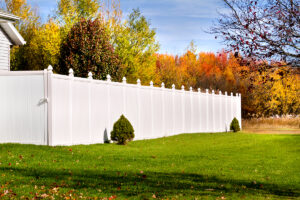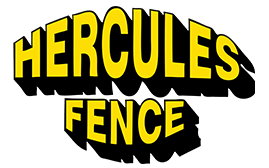
Who wins in the battle of vinyl vs. wood fences? It really depends on your personal needs and preferences!
When it comes to choosing the perfect fence for your home, the decision often comes down to two popular materials: vinyl and wood. Both offer distinct advantages and drawbacks, making it essential to consider your priorities, budget, and aesthetic preferences before making a final choice. In this blog, we’ll break down the pros and cons of vinyl and wood fences to help you determine which is best suited for your home.
Vinyl Fences: Low Maintenance and Long-Lasting
Vinyl fencing has become a favorite among homeowners who value durability and minimal upkeep. Made from PVC (polyvinyl chloride), vinyl fences are resistant to rot, pests, and weather damage, making them an excellent long-term investment.
Pros of Vinyl Fencing:
- Low Maintenance – Unlike wood, vinyl doesn’t require staining, painting, or sealing. A simple wash with soap and water keeps it looking new.
- Durability – Vinyl is resistant to termites, moisture, and harsh weather conditions, preventing warping, cracking, or rotting.
- Variety of Styles – Available in various colors, textures, and designs, vinyl fences can mimic the appearance of wood while maintaining their resilience.
- Longevity – With proper care, vinyl fences can last 20-30 years, making them a cost-effective choice over time.
Cons of Vinyl Fencing:
- Less Natural Look – Although manufacturers have improved vinyl’s appearance, some homeowners prefer the authentic charm of real wood.
- Difficult Repairs – While vinyl is durable, if a panel gets damaged, replacing it can be more complicated than fixing a wood fence.
Wood Fences: Timeless Charm and Customization
For homeowners who appreciate a classic, rustic aesthetic, wood fencing remains a top contender. With different types of wood, stains, and designs available, wood fences offer significant versatility.
Pros of Wood Fencing:
- Natural Beauty – Wood’s organic appeal enhances curb appeal and blends well with various home styles.
- Customizable – Wood fences can be stained or painted in any color, allowing homeowners to change the look over time.
- Affordable Upfront Cost – Depending on the type of wood chosen, installation costs can be lower compared to vinyl.
- Eco-Friendly Options – Sustainably sourced wood fencing can be an environmentally friendly choice.
Cons of Wood Fencing:
- Higher Maintenance – Wood requires regular staining, sealing, or painting to prevent rot, mold, and insect infestations.
- Shorter Lifespan – With exposure to moisture and pests, wood fences typically last around 10-15 years without intensive upkeep.
- Susceptible to Weather Damage – Wood can warp, crack, or rot over time, especially in areas with high humidity or frequent rain.
Which Fence is Best for You?
The right choice depends on your personal preferences, budget, and maintenance commitment.
- Choose Vinyl if you want a durable, low-maintenance option that lasts for decades with minimal upkeep.
- Choose Wood if you love the classic look of natural wood and don’t mind regular maintenance to keep it in top shape.
Both vinyl and wood fences offer unique benefits, and either can enhance your home’s privacy, security, and curb appeal. By considering your long-term needs and desired aesthetic, you can make an informed decision that suits your home perfectly.
Residential & Commercial Fences from Hercules Fence DC
Hercules Fence DC has been providing property owners with quality fences for over 50 years. We are well-equipped to meet your needs, whether they are residential or commercial. We have extensive experience working with families and pet owners to keep the most important members of their homes safe, so call us today about installing a new pet fence for your family. Contact us by giving us a call at 301-441-1600 or visiting us online. To see examples of our work, follow us on Facebook, Twitter, LinkedIn, Pinterest, and Flickr.








